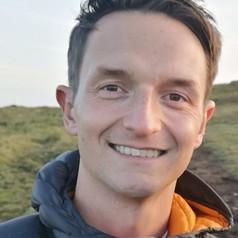
Jamie Lingwood
Senior Lecturer in Psychology, Liverpool Hope University
Jamie Lingwood is a Senior Lecturer in Psychology at Liverpool Hope University.
His research focuses on how adult-child interactions influence language development and learning, including from digital media.
He is the Principal Investigator on an Educational Endowment Foundation-funded project, designing and evaluating an innovative program to inspire and sustain a love of reading in children.
Jamie was an on-screen expert for the BBC's Tiny Happy People Campaign, where he used his expertise to help parents support their children's language and communication skills.
Less ![]()
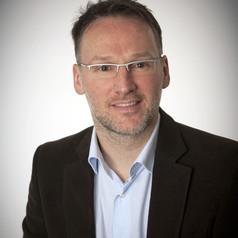
Jamie Marsden
Lecturer in Brand Communications, University of Leeds
My research interests are orientated around the domain of branding, specifically in the strategic expressions of corporate brands. I hold a PhD in corporate communications and marketing, and undergraduate and postgraduate qualifications in graphic design.
Prior to joining the University of Leeds I spent 14 years as a brand consultant and design manager. Throughout this time I worked for the following clients: Cadbury Schweppes, Department for Education and Employment, General Electric, Inland Revenue, Lockheed Martin, NHS, Nike, Northern Foods, Royal Mail, Swann-Morton, Virgin, Wildlife Trusts, WS Atkins.
Less ![]()
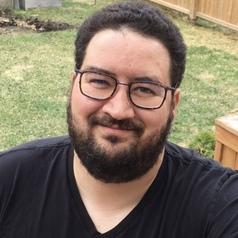
Jamie Paris
Instructor, Department of English, Theatre, Film & Media, University of Manitoba
Jamie specializes in: Shakespeare and early modern drama with a focus on premodern critical race studies and tragedy; Canadian Literature with a focus on Black and First Nations Literature and Culture and masculinities; digital humanities. His theoretical approaches are: Critical Race Theory and Theories of Intersectionality; Histories of Whiteness and masculinities.
Recent Publications
“‘Mislike Me Not for My Complexion’: On Anti-Black Racism and Performative Whiteness in William Shakespeare’s The Merchant of Venice.” Journal of Early Modern Culture 20.4. (2020): 43-61,doi:10.1353/jem.2020.0029
“Bad Blood, Black Desires: On the Fragility of Whiteness in Middleton’s and Rowley’s The Changeling.” Early Theatre 24.1 (2021), 113–37, https://doi.org/10.12745/et.24.1.3803
“‘What Condition Will Not Miserable Men Accept?’: Hegemonic Masculinity in John Lyly’s Galatea.” Renaissance and Reformation 43.1 (2020): 81–103.
“‘Men Break When Things Like That Happen’: Indigenous Masculinities in Katherena Vermette’s The Break.” Canadian Literature 239 (2019): 68–84.
With Mike Borkent (UBC). “Asymmetric Digital Collaboration and Collective Authorship: On Digital Genres and Writing Processes for CanLit Guides.” Digital Studies/Le champ numérique [Online] (2016). Web 31 March 2016. http://www.digitalstudies.org/ojs/index.php/digital_studies/article/view/306/410.
“Flipped Marking and Plagiarism Avoidance in a Digital Age: Rethinking marking as a scholarly community development tool.” Digital Studies/Le champ numérique [Online] (2014). Web 13 July 2014. http://www.digitalstudies.org/ojs/index.php/digital_studies/article/view/272/324.
Less ![]()
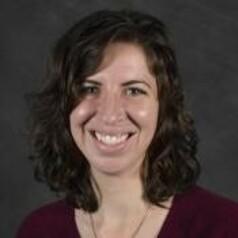
Jamie Peeler
Postdoctoral Research Fellow, University of Montana
Dr. Jamie Peeler is a landscape ecologist dedicated to tackling forest conservation challenges in a more fire-prone world. Her interest in fire was originally sparked while working abroad in South Africa’s savannas. After returning to the United States, Jamie pursued research technician positions within hardwood forests in Minnesota, forested wetlands in Florida, and conifer forests in the Pacific Northwest. She experienced fire in many forms while working in these different ecosystems, including its potential to reshape forests dramatically. Her firsthand experiences ultimately inspired questions on fire, spatial pattern, and resilience that shaped her work in graduate school. In 2021, Jamie completed her PhD in Geography from Penn State University. She is currently completing a postdoctoral fellowship as a NatureNet Science Fellow with The Nature Conservancy and University of Montana.
Less ![]()
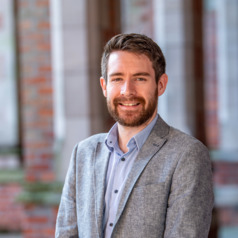
Jamie Pow
Lecturer, School of History, Anthropology, Philosophy and Politics, Queen's University Belfast
Jamie Pow is a Lecturer in Political Science at Queen's University Belfast. His research focuses on the way citizens interact with democratic decision-making, including through elections, mini-publics and referendums. His doctoral thesis investigated the perceived legitimacy of citizens' assemblies in the deeply divided context of Northern Ireland. He has worked on an ESRC project investigating public opinion towards Brexit in Northern Ireland. Before coming to Queen's Jamie was a postdoctoral researcher at KU Leuven, where he worked on an ERC project analysing the extent to which democratic innovations meet citizens' expectations.
Less ![]()
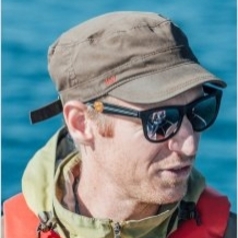
Jamie Shutler
Professor of Earth Observation and Climate, University of Exeter
I am an atmospheric and oceanic research scientist, with a background in mathematics and electronic engineering, and I am a Professor in Earth Observation and Climate at the University of Exeter. My research has included instrument design and in field measurements, through to global analyses that exploit machine learning techniques, the design of large satellites. And most of my work focusses on climatically important cycles in the ocean, but also in the atmospheric layers from sea level up to the edge of space.
Less ![]()
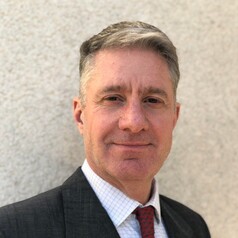
Jamie Smith
Director of Undergraduate Programmes, ISC Paris Business School
I currently serve as the director of undergraduate programme at the Institut Supérieur du Commerce and worked as a marketing professor from 2004 to 2013.
Less ![]()
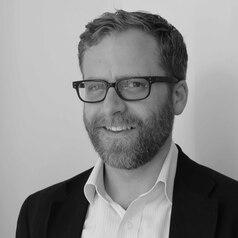
Jamie Speirs
Deputy Director, Centre for Energy Policy, University of Strathclyde
Jamie Speirs is Reader and Deputy Director in the Centre for Energy Policy at Strathclyde University where he investigates the social, technical and economic issues affecting energy systems and emissions reduction in the UK, Europe and globally.
He has 17 years’ experience in energy techno-economic research. Jamie currently works in a number of areas, including the decarbonisation of domestic heat and related energy networks, use of hydrogen in existing gas infrastructure, and the future of critical materials for the energy sector.
Jamie previously worked at Imperial College London, where he led the Sustainable Gas Institute White Paper Series, using systematic review methods to gather evidence and address contentious topics in energy. Jamie led the SGI’s most recent White Paper “The best uses of natural gas within Paris climate agreements”.
Jamie regularly provides expert evidence and analysis to a range of non-academic stakeholders including government, industry and the third sector.
Less ![]()
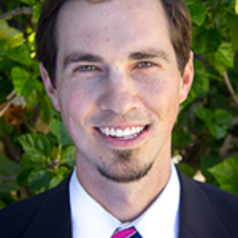
Jamie T. Mullins
Assistant Professor of Resource Economics, University of Massachusetts Amherst
I am interested in the quantitative investigation of policy-relevant factors that contribute to outcomes in human health and well-being. My research to date has been primarily concerned with the two-way interaction between environmental conditions and human activities. In addition to a continued attention to environmental topics, I am particularly interested in expanding the scope of my work to questions in health, education, agriculture, and development.
Less ![]()
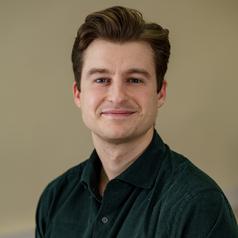
Jamie Webb
PhD Candidate, Centre for Technomoral Futures, The University of Edinburgh
Jamie Webb is a doctoral researcher in the University of Edinburgh’s Centre for Technomoral Futures. Between 2021-22 he worked for the UK Pandemic Ethics Accelerator focussing on public values, transparency and governance. Jamie was previously a research associate in the Division of Medical Ethics at the NYU Grossman School of Medicine. He has a BA in Philosophy and an MSci in History and Philosophy of Science from the University of Cambridge, and an MA in Bioethics from NYU, where he studied on a Fulbright scholarship.
Less ![]()
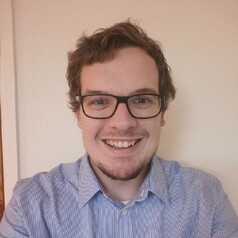
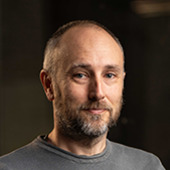
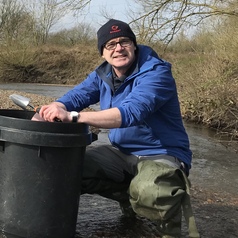
Jamie Woodward
Professor of Physical Geography, University of Manchester
I am a Professor of Physical Geography in the Department of Geography at The University of Manchester and a member of the Quaternary Environments and Geoarchaeology Research Group. Current research themes include exploring records of human activity in ice age environments, Holocene river environments, Anthropocene rivers and microplastic contamination, geoarchaeology of the Nile Valley, records of Pleistocene glaciation and river behaviour in the Mediterranean mountains. I also co-edit Geoarchaeology: An International Journal.
Less ![]()

Jamie C. Weir
PhD Researcher in Evolutionary Biology, The University of Edinburgh
Jamie Weir is an evolutionary and behavioural ecologist interested in the origins of biological diversity and its consequences in changing environments. His research focuses particularly on adaptive colouration and phenology in the Lepidoptera (butterflies and moths).
In his most recent teaching post at the University of Edinburgh, Jamie provided statistical support to fourth year undergraduate students designing, conducting, and completing their honours research projects.
Jamie completed his PhD at Edinburgh's Institute for Ecology and Evolution, supervised by Ally Phillimore. He used large-scale experimental approaches to examine the consequences of phenological asynchrony in woodland caterpillar species. Prior to this work, he employed a combination of field experiments and phylogenetic comparative analyses to investigate the selective pressures exerted on insect colouration by bird predators.
Jamie is a Fellow of the Linnean Society of London, and a Member of the Royal Entomological Society.
Less ![]()
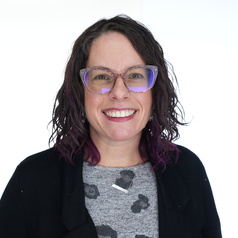
Jamie Levine Daniel
Associate Professor, Paul H. O'Neill School of Public and Environmental Affairs, Indiana University
I research the relationships between nonprofit resource acquisition, service delivery, and power. I focus on equity and justice in policy, process, and practice.
Less ![]()
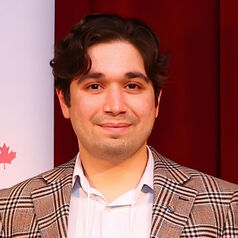
Jamil Muradov
PhD Candidate, Killam Scholar, Department of Medical Neuroscience, Faculty of Medicine, Dalhousie University
Jamil Muradov is a PhD candidate in Dr. Alon Friedman's lab. Jamil's research focuses on understanding early neurovascular events that occur following traumatic brain injury that can help predict the outcomes of the head impact and develop novel treatments. In his research, he uses a multimodal approach to study the electrophysiology, cerebrovascular dynamics, molecular biology and behavioral outcomes of brain injury, bridging the gap between fundamental neurophysiology and innovation that can help diverse patients in Canadian communities and worldwide.
Less ![]()

Jamilla Rosdahl
Senior Lecturer, Australian College of Applied Psychology
Dr Jamilla Rosdahl is a Senior Lecturer and researcher specialising in gender, coercive and social control, surveillance and violence as well as critical criminology, the body, nineteenth- and twentieth- century continental philosophy and social and political thought. Dr Rosdahl currently teaches sociology, social work, social psychology, environmental and postcolonial sociology, classic and late-modern social theory with a focus on feminist, post-colonial, post-structuralist and Foucauldian thought. She has taught at the University of the Sunshine Coast (USC), Karlstads University (KaU), and worked for the Queensland Research Centre for Domestic and Family Violence at Central Queensland University (CQU), Australia. In 2018 Dr Rosdahl worked for the Swedish Prison and Probation Service within the areas of male sexual crimes, sexual abuse and violence.
Less ![]()
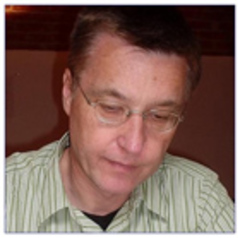
Jan Culik
Jan Čulík is a graduate of Charles University, Prague. He has been working as Lecturer and Senior Lecturer in Czech Studies at the University of Glasgow since 1995. After being employed as a lecturer in Czech Studies at the Universities of Glasgow and Lancaster in the early 1980s, he worked as an independent producer and film maker for the UK TV station Channel Four Television. His Channel Four documentary “Orpheus through the Ages” (1984) received a Scottish BAFTA (TRIC) award for the best film in the Music and Arts category in 1986. In the 1980s and 1990s, Jan Čulík has also worked as a journalist for the Czechoslovak section of the BBC World Service and for the US station Radio Free Europe. In 1996, he founded a Czech-language cultural and political internet daily Britské listy (blisty.cz), which has currently some 3 million individual readers per year (Google Analytics). He is well-known as a public commentator in the Czech Republic. Jan Čulík is the author of two monographs on post-communist Czech cinema, one published in Czech and one in English. He has recently also produced an international monograph dealing with the construction of mythologies in the Central and East European TV series.
Less ![]()
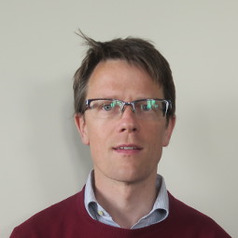
Jan De Rydt
Associate Professor of Polar Glaciology and Oceanography, Northumbria University, Newcastle
Jan De Rydt is a UKRI Future Leaders fellow at Northumbria University, where he conducts research in polar glaciology and oceanography. He is interested in physical processes that govern the flow of glaciers and ice caps, and their interactions with the climate system. He uses a combination of theory, measurements and computer models to simulate present-day and future changes of the Antarctic Ice Sheet, and understand its complex intereactions with the surrounding ocean. His work aims to reduce the uncertainty in sea level rise forecasts over the next decades to centuries.
Less ![]()
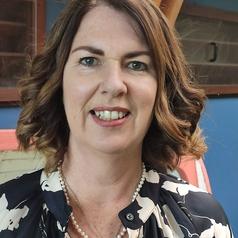
Jan Dewar
Head of Nursing, Auckland University of Technology
Dr Jan Dewar (Ngai Tahu) is the Head of Nursing at Auckland University of Technology (AUT). Her thesis 'What is 'good care; in a medical/surgical setting used a hermeneutic phenomenological approach. She has an interest in health safety and quality, and Māori health.
Less ![]()
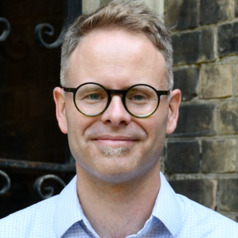
Jan Doering
Assistant Professor of Sociology, University of Toronto
I conduct research on topics of urban change and the sociology of discrimination. My research has been funded by the Fulbright Commission, the National Science Foundation, the Social Sciences and Humanities Research Council, and Les Fonds de recherche du Québec. At the University of Toronto, I teach courses on research methods, crime and deviance, and urban sociology.
Less ![]()
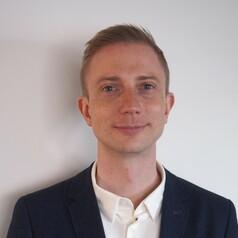
Jan Eichhorn
Senior Lecturer in Social Policy, The University of Edinburgh
Jan is a researcher interested in how we can enhance and improve different avenues for political participation and challenge orthodox conceptions of socio-economic analyses. He teaches courses on these matters at the University of Edinburgh. A major objective of his work is to create practical applications of teaching and research, which he does through his work as Research Director of the Berlin-based think tank d|part.
Less ![]()
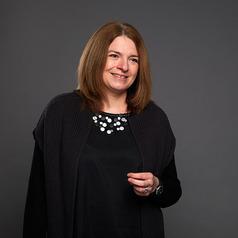
Jan Gilbertson
Senior Research Fellow, Centre for Regional Economic and Social Research, Sheffield Hallam University
Jan Gilbertson is a Senior Research Fellow in the Centre for Regional Economic and Social Research at Sheffield Hallam University. She has an MA in Social Science Research Methods, extensive experience of working on collaborative and multi-disciplinary projects and expertise in both qualitative and quantitative research methods, project management and policy and programme evaluation.
Jan has managed numerous evaluative studies and successfully undertaken research for a wide range of clients including the former DECC, DWP, the BIG Lottery, local authorities, the NHS, Age UK and the ESRC. She has considerable experience of in-depth qualitative interviewing and working with stakeholders in order to develop an understanding of decision-making processes, to gain insight into the views of programme/project staff and project users to assess the impacts and outcomes of interventions on beneficiaries.
Less ![]()
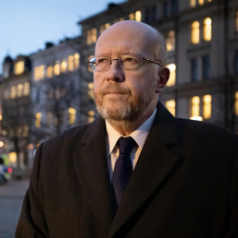
Jan Grabowski
Professor, Department of History, L’Université d’Ottawa/University of Ottawa
Professor Grabowski's research includes the issues surrounding the extermination of the Polish Jews as well as the history of Jewish-Polish relations during the 1939-1945 period. He is the author of several monographs, including Hunt for the Jews. Betrayal and Murder in German-Occupied Poland (Indiana University Press, Bloomington & Indianapolis, 2013) which won the Yad Vashem International Book Prize in 2014. Professor Grabowski has recently completed a project dealing with the involvement of the Polish “Blue” and criminal police in the Holocaust. His forthcoming research focuses on the open ghettos in the Generalgouvernement. A recipient of the 2014 Faculty of Arts Professor of the Year Award, he teaches survey courses and graduate and undergraduate seminars on the history of the Holocaust.
Less ![]()

Jan Gurung
Researcher in Centre for Loneliness Studies, Sheffield Hallam University
Jan is currently carrying out research on intergenerational living and the impact on health, wellbeing and levels of loneliness among older people and young adults. Her areas of expertise is student well-being, intergenerational living and loneliness.
Less ![]()
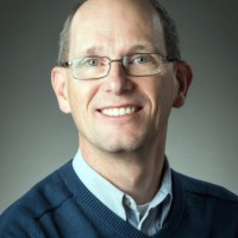
Jan Hofman
Professor Jan Hofman completed his MSc and PhD in Chemical Engineering at Eindhoven University of Technology in the Netherlands, studying the flow of dilute emulsions through porous media.
Jan worked for 25 years in water treatment research in the Netherlands at Kiwa, Waternet (Amsterdam Water Supply) and KWR Watercycle Research Institute. He was also a visiting researcher at Delft University of Technology. He was involved in many international research projects and has expertise in a number of water treatment processes, including sand filtration, activated carbon filtration, ozonation, UV, membranes, and softening.
Currently, Jan is the Director of the Water Innovation and Research Centre: WIRC @ Bath. The Centre provides a unique environment to engage globally in research and policy on water technologies and resource management. The centre comprises multidisciplinary research teams, with wide expertise in the natural sciences and engineering, as well as in social, economic and political sciences, in policy, and in business management.
Research
Prof Hofman’s research is focused on creating sustainable solutions in the water cycle. His personal research interests are:
sustainable water management
origin, fate and abatement options for emerging contaminants like pharmaceutical compounds or nanoparticles in water
thermal energy recovery from water and wastewater
resource recovery from wastewater and water treatment residuals
upscaling of nanotechnology application for water treatment.
Less ![]()
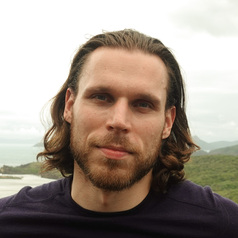
Jan Kreibich
PhD Candidate, Centre for Ecosystem Science & Water Research Laboratory, UNSW Sydney
Jan Kreibich is passionate about turning scientific insights into real-world solutions for conserving and restoring our planet's invaluable ecosystems and the incredible species that call them home. He has an interdisciplinary academic background, having studied geoscience, forestry, agriculture, and water engineering at leading universities in Australia, Germany, the Netherlands, Portugal, Svalbard, Switzerland, and the United States. Jan has conducted ecosystem science research at renowned institutions such as the Max Planck Institute for Biogeochemistry, the Smithsonian Environmental Research Center, and the University of California at Berkeley. He also worked as a data analyst for the European Commission's LIFE Environment Programme. Currently, Jan is completing his PhD at UNSW Sydney, where he focuses on large-scale freshwater ecosystem restoration.
Less ![]()
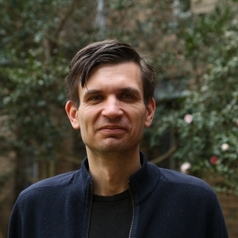
Jan Lanicek
Associate Professor in Modern European History and Jewish History, UNSW Sydney
Less ![]()
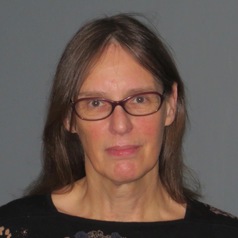
Jan Oyebode
Professor of Dementia Care, University of Bradford
Jan Oyebode, Professor of Dementia Care, moved to University of Bradford in 2013 and before that combined an NHS career as a clinical psychologist with older people with academic roles, most recently in Birmingham. She has researched widely on topics connected with dementia, bereavement and old age psychology. Her current interests focus on relationships in dementia, including cultural influences and also young onset and fronto-temporal dementias.
Less ![]()
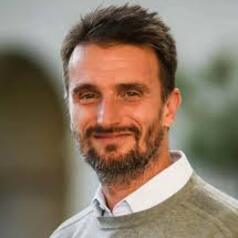
Jan Pospisil
Associate Professor, Research, Coventry University
Jan Pospisil is Associate Professor (Research) at Coventry University’s Centre for Trust, Peace and Social Relations and Co-Investigator of the Peace and Conflict Resolution Evidence Platform (PeaceRep), funded by UK FCDO. He has been working on South Sudan and Sudan since 2009.
Less ![]()
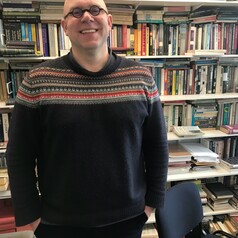
Jan Ruzicka
Lecturer in Security Studies, Aberystwyth University
Jan was appointed as Lecturer in Security Studies in August 2011. Since October 2013 he serves as Director of the David Davies Memorial Institute of International Studies. Previously, he worked in the Department as a research assistant on the project 'The Challenges to Trust-Building in Nuclear Worlds'. From 2006 to 2009 he was Marie Curie doctoral fellow in the Department, where he defended his thesis in 2010. The thesis combined a theoretical critique of securitization theory with historical case studies of the French and Russian revolutions. Prior to coming to Aberystwyth, he served as the chief aide to a ranking member of the Committee on Foreign Affairs, Defence, and Security of the Senate of the Czech Republic from 2004 to 2006. A graduate of Charles University in Prague, he received his MA degrees in politics at Brandeis University (Fulbright Scholarship) and in international relations at Central European University (Soros Foundation Scholarship).
Jan's research interests can broadly be divided into three main areas: security studies; international relations theory; and area studies with emphasis on Central Europe. In security studies his research focuses on theories of security, the relationship between politics and security, nuclear weapons and emerging security threats. Jan's work in international relations theory concentrates on the problem of theorizing trust at the international level. He has developed the concept of trusting relationship and currently works on anchoring the concept in a more general theory of international politics. Finally, he has had a long-standing research interest in area studies. This research has led to several articles on regional politics of Central Europe.
Less ![]()
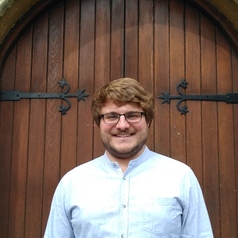
Jan Łyczakowski
Postdoctoral Research Fellow in Plant Biotechnology, Jagiellonian University
Dr. Jan Łyczakowski is a researcher in the Department of Plant Biotechnology of the Faculty of Biochemistry, Biophysics and Biotechnology of the Jagiellonian University.
Łyczakowski's research interests include the biochemistry and molecular architecture of wood; the biosynthesis of primary and secondary cell wall polysaccharides in trees; the impact of environmental signals on the process of wood biosynthesis; the use of cell wall polysaccharides for the manufacturing of biodegradable plastics and the use of lignocellulosic biomass in industrial processes.
Less ![]()
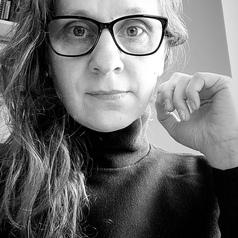
Jana Javornik
Associate Professor Leeds University Business School, University of Leeds
I am an academic/policy maker. I am Assoc Prof in Work and Employment Relations, senior policy adviser to central governments and international policy-making communities, and a member of Covid19 and Climate trackers. I am affiliated with a number of European universities and the Slovene Institute of Contemporary History (INZ). Until recently, I was Director-General of Higher Education in the Slovene Ministry of Science and Education, and Director of the Noon Centre for Equality and Diversity in Business at the University of East London.
I serve on several editorial boards, including Work Employment & Society, International Journal of Care & Caring, and Slovenian Sociological Association Journal Druzboslovne razprave.
I investigate the intersections between the welfare state, public policy, markets across welfare states; equality, diversity and inclusion in the labour market, and sustainable workplaces. I apply comparative perspectives and innovative policy analysis methodologies and contribute to indicator development and better data infrastructure.
Less ![]()
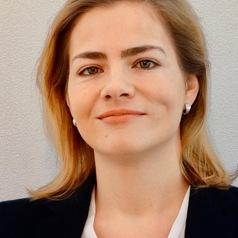
Jana Krause
Academic interests
Communal conflicts, civil war, civilian agency, civilian protection, peacebuilding, gender, Sub-Sahara Africa, South/Southeast Asia
Teaching
PECOS 4025 - Analytical Perspectives on Peace and Conflict
Projects
ERC Project 'Resilience Building: Social Resilience, Gendered Dynamics, and Local Peace in Protracted Conflicts' (2020-2025)
Awards
2020 Nils Petter Gleditsch Article of the Year Award of the Journal of Peace Research
2019 Lee Ann Fujii Book Award for Innovation in the Interpretive Study of Political Violence, American Political Science Association
Appointments
2021 - Professor, Department of Political Science, University of Oslo
2020 - Associate Professor, Department of Political Science, University of Oslo
2016 - Assistant Professor, Department of Political Science, University of Amsterdam
2013 - Visiting Research Fellow, Department of War Studies, King's College London
2013 - Post-Doctoral Researcher, German Institute of Global and Area Studies, Hamburg
2011 - Visiting Research Fellow, MacMillan Center for International and Area Studies, Yale University
2013 - PhD, Graduate Institute of International and Development Studies, Geneva
Selected publications
Books
Krause, Jana. 2018. Resilient Communities: Non-Violence and Civilian Agency in Communal War. Cambridge University Press.
2019 Book Prize Winner: Lee Ann Fujii Award for Innovation in the Interpretive Study of Political Violence, Interpretive Methodologies and Methods (IMM) Conference Group of the American Political Science Association, sponsored by Routledge/Taylor & Francis Group
2019 Book Prize Runner-Up: Conflict Research Society Book of the Year Award
Krause, Jana, Juan Masullo, Emily Paddon Rhoads and Jennifer Welsh (eds). Civilian Protective Agency in Violent Settings. Under contract with Oxford University Press.
Articles
Krause, Jana and Erin Kamler. 2022. Ceasefires and Civilian Protection Monitoring in Myanmar. Global Studies Quarterly 2:1, 1-12.
Krause, Jana. 2021. Ethics of Ethnographic Methods in Conflict Zones. Journal of Peace Research, 58:3, 329-341.
Krause, Jana. 2020. Restrained or Constrained? Elections, Communal Conflicts and Variation in Sexual Violence.Journal of Peace Research 57:1, 185-198 .
2020 Nils Petter Gleditsch Article of the Year Award, Journal of Peace Research
Krause, Jana. 2019. Stabilization and Local Conflicts: Communal and Civil War in South Sudan. Ethnopolitics, 18:5, 478-493.
Krause, Jana. 2019. Gender Dimensions of (Non)Violence in Communal Conflict: The Case of Jos, Nigeria.Comparative Political Studies, 52:10, 1466-499.
| Ethics & Methods Appendix
Krause, Jana, Werner Krause and Piia Braenfors. 2018. Women's Participation in Peace Negotiations and the Durability of Peace. International Interactions, 44:6, 985-1016. | Replication Data | Policy Brief
Krause, Jana. 2017. Non-Violence and Civilian Agency in Communal War: Evidence from Jos, Nigeria. African Affairs,116 (463): 261-283.
Krause, Jana and Cynthia Enloe. 2015. A Wealth of Expertise and Lived Experience: Conversations between International Women Peace Activists at the Women Lead to Peace Summit preceding the Geneva II Peace Talks on Syria, January 2014. International Feminist Journal of Politics, 17:2.
Carbonnier, Gilles, Fritz Brugger and Jana Krause. 2011. Global and Local Policy Responses to the Resource Trap. Global Governance, 17:2, 247-264.
Book Chapters
Krause, Jana. Forthcoming. Civilian Protection Monitoring in War and Ceasefire Contexts: Evidence from Myanmar’s Kachin and Karen States. In: Krause, Jana, Juan Masullo, Emily Paddon-Rhoads and Jennifer Welsh (eds): Civilian Protective Agency in Violent Settings. Oxford University Press. (Post-print)
Krause, Jana, Juan Masullo and Emily Paddon-Rhoads. Forthcoming. Introduction. In: Krause, Jana, Juan Masullo, Emily Paddon-Rhoads and Jennifer Welsh (eds): Civilian Protective Agency in Violent Settings. Oxford University Press.
Krause, Jana and Louise Olsson. Forthcoming. Women's Participation in Peace Processes. In MacGinty, Roger and Anthony Wanis-St.John (eds): Contemporary Peacemaking: Conflict, Violence and Peace Processes. Palgrave Macmillan. (Post-print)
Chappuis, Fairlie and Jana Krause. 2019. Ethics and Research Dilemmas in Dangerous Places: Exploring Security Actors, Institutions and Practices in Conflict-Affected Countries. In Marieke de Goede, Polly Pallister-Wilkins and Esme Bosma: Secrecy and Methods in Security Research. London: Routledge.
Gizelis, Theodora-Ismene and Jana Krause. 2015. Gender Equality and Post-Conflict Reconstruction: Revisiting Gender Mainstreaming in Research and Policy. In: Gizelis, T-I. and L. Olsson (eds): Gender, Peace and Security: Implementing UNSCR 1325. Routledge, 2015 (with Theodora-Ismene Gizelis). (Post-print)
Krause, Jana. 2015. Revisiting Protection from Conflict-Related Sexual Violence: Actors, Victims and Power. In: Gizelis, T-I. and L. Olsson (eds): Gender, Peace and Security: Implementing UNSCR 1325. Routledge 2015. (Post-print)
Krause, Jana. 2011. Die Konstruktion religiöser Gewalt im Kontext des Regimewechsels in Indonesien und Nigeria. In: Stephanie Garling/ Simon W. Fuchs (eds), Religion in Diktatur und Demokratie, Villigster Profile, Wuppertal.
Mani, Rama and Jana Krause. 2009. Democratic Governance. In: Vincent Chetail (ed), Post-Conflict Pecebuilding. A Lexicon. Oxford University Press. 2009.
Policy Briefs and Policy Papers
Krause, Jana. 2020. Women, Peace and Security: Prevention and Resolution of Communal Conflicts. Joint Brief Series 'New Insights on Women, Peace and Security (WPS) for the Next Decade', Folke Bernadotte Academy, Peace Research Institute Oslo and UN Women.
Crippa, Lorenzo, Theodora-Ismene Gizelis, Jana Krause and Paul Minoletti. 2020. Differences in Citizens' Budget Preferences in Myanmar: Evidence from a New Survey. Myanmar Institute of Gender Studies, forthcoming.
Krause, Jana. 2018. Women’s Participation in Peace Negotiations and the Durability of Peace. Research Brief, Conflict, Security and Development Research Group, King’s College London.
Krause, Jana. 2014. Prevention of Conflict-related Sexual Violence: What does Academic Research tell us?’in Prevention of Wartime Rape, Panel Discussion Report from the Global Summit to End Sexual Violence in Conflict, Global Diplomatic Forum.
Krause, Jana. 2011. A Deadly Cycle: Ethno-Religious Conflict in Jos, Plateau State, Nigeria. Geneva: Geneva Declaration on Armed Violence and Development, (65pp).
Less ![]()
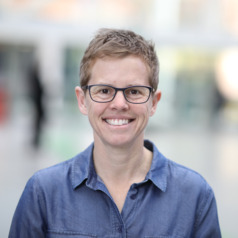
Jana Norman
Alfred Deakin Postdoctoral Research Fellow, Deakin University
Jana Norman is an Alfred Deakin Postdoctoral Research Fellow in the Faculty of Arts and Education at Deakin University. Jana also teaches in the English, Creative Writing and Film Department at the University of Adelaide. Jana's research interests in environmental humanities and legal theory focus on critical and creative approaches to collaborating across difference towards reparative shared futures. Her book, Posthuman Legal Subjectivity: Reimagining the Human in the Anthropocene (Routledge 2021) received the Socio-Legal Studies Theory and History Book Prize in 2022 and the Chris Beasley Prize for Gender and Sexuality Theory from the Fay Gale Center for Research on Gender at the University of Adelaide in 2021.
Less ![]()
- Market Data























